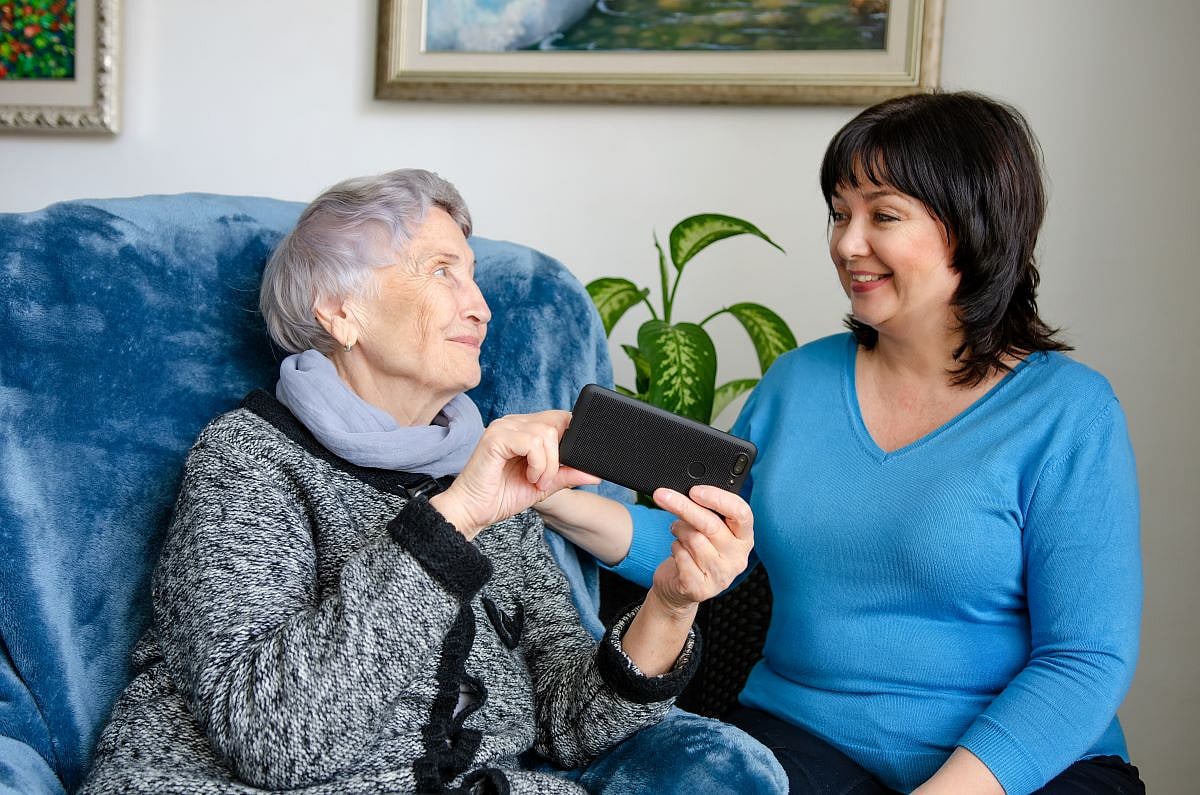Get Healthy!

- Dennis Thompson
- Posted July 18, 2025
Nieces, Nephews Become Dementia Caregivers Unexpectedly, Study Says
Two-thirds of nieces and nephews caring for an aging relative with dementia never expected to wind up with that responsibility, a recent small-scale study says.
These caregivers say they either gradually fell into the role, or had it forced upon them by family circumstances, according to findings published recently in the journal The Gerontologist.
“That spontaneity shows extraordinary love and empathy while masking a lot of real stress,” researcher Tina Savla, a professor of human development and family science at Virginia Tech, said in a news release.
“They carry all of the responsibilities associated with primary caregiving while also managing their own households, children, and work,” she added.
However, these nieces and nephews also had lifelong relationships with their aunts and uncles and were shaped by generational ties to be potential caregivers, results show.
“Many participants told us, 'I’m just paying back the love my aunt showed me when I was a kid,’ ” Savla said. “I think that when care comes from heartfelt gratitude rather than sheer duty or obligation, then caregivers keep going — even when resources are thin and pressures and stressors are high.”
For the study, researchers conducted extensive interviews with 20 nieces and five nephews caring for an aunt or uncle. The caregivers ranged in age from 38 to 67, and were located in Virginia, Kentucky, Maryland, North Carolina, Tennessee and West Virginia.
The caregivers all either lived with their relatives or saw them at least three times a week, researchers said.
The study comes at a critical time in America, researchers said, as its aging population means that many extended relatives will wind up in a caregiving role they never expected.
Results show that 17 of the 25 caregiving nieces and nephews grew up in the same town as their aunts and uncles.
“They described their relative in positive terms ('fun;' 'favorite') and viewed them as someone with whom they confided or turned to for advice,” researchers wrote of the caregivers. “In two families, the aunt took on more of a ‘mother’ role.”
As the younger relatives grew up, they maintained close relationships with the aunts and uncles for whom they would one day provide care.
“We would always talk, and catch up; she'd ask about school. Or, as I got married, she was just somebody you could always ask for feedback,” one 63-year-old niece said of her aunt. “As I got divorced, she was somebody who had also been divorced, so she was somebody that I could talk to about that.”
Overall, 19 of the 25 caregivers never expected to be caring for their aunt or uncle, researchers found.
One nephew, 60, said caregiving for his aunt “was not part of the plan,” but he assumed the role because his wife and her sisters all worked outside the home while he had more flexibility as a remote worker.
Another niece, 52, said she had to take over care of her aunt from her mother, whose own health was not good.
“She lived at my mom’s and then it proved too much for my mom,” the niece said of her aunt. “They'd get in fights and [aunt] would throw canned food at my mom's head. She [mother] wasn't physically able to do anything, but she had a sharp tongue, so they'd get into some altercations.”
Current life circumstances played a larger role in nieces and nephews stepping in to become a caregiver than factors like singlehood or childlessness, researchers said.
For example, nearly one-half of the relatives with dementia had at least one living child, and more than two-thirds had a living sibling, “yet nieces/nephews assumed primary caregiving responsibilities,” researchers wrote.
These caregivers said they got some support from other family members, particularly with essential activities of daily living like housework, food, shopping, transportation and finances.
“More often, the immediate family of the person living with dementia provided sporadic help, but typically only when the caregivers asked, and their help was not always forthcoming,” researchers wrote.
Paid service providers also assisted in caregiving for 18 of the nieces and nephews, results show. These included services like Meals on Wheels.
The older relatives had on average about 10 memory and behavior problems related to their dementia, including forgetting the day, repeating the same question, struggling to remember recent events, losing or misplacing items, feeling sad or anxious, and difficulty controlling their bowels or bladder.
One 56-year-old niece’s comment that “it’s like having a forever baby” was echoed by others, with the demanding work taking a toll on the caregivers’ patience, researchers said.
“Some days you just don't feel like it, but you have to push yourself to do the thing, to go around there and speak to him,” another 61-year-old niece said. “It can be very stressful sometimes. Sometimes you're just tired.”
These results indicate that support systems need to acknowledge that non-traditional caregivers like nieces and nephews sometimes step in to fill the role, researchers said.
“Understanding the contributions of extended family caregivers provides a more complete picture of the family caregiving ecosystem” researcher Karen Roberto, founding executive director of Virginia Tech’s Institute for Society, Culture, and Environment, said in a news release.
“Learning about their experiences will help identify unmet care needs and guide interventions to help sustain and improve caregiver well-being, which in turn benefits the person living with dementia and society at-large,” Roberto added.
More information
The Alzheimer’s Association has more on caregiving for relatives with dementia.
SOURCE: Virginia Tech, news release, June 16, 2025





